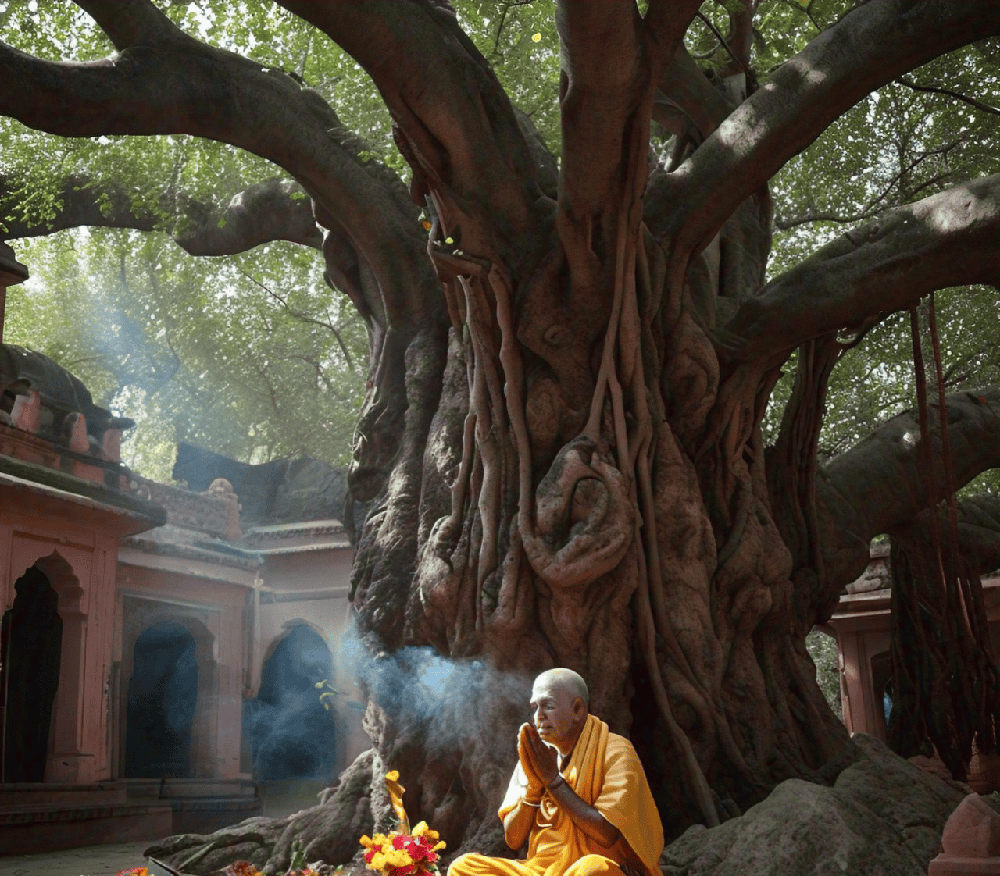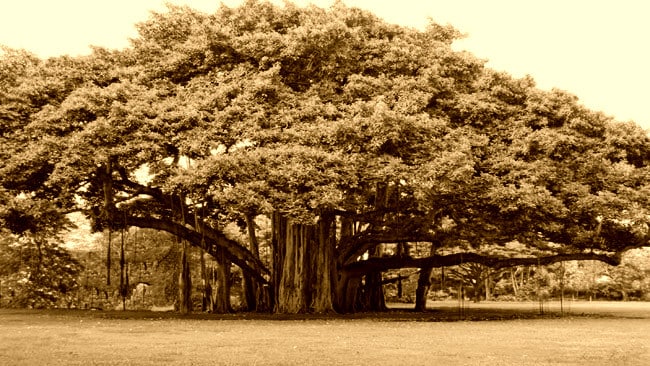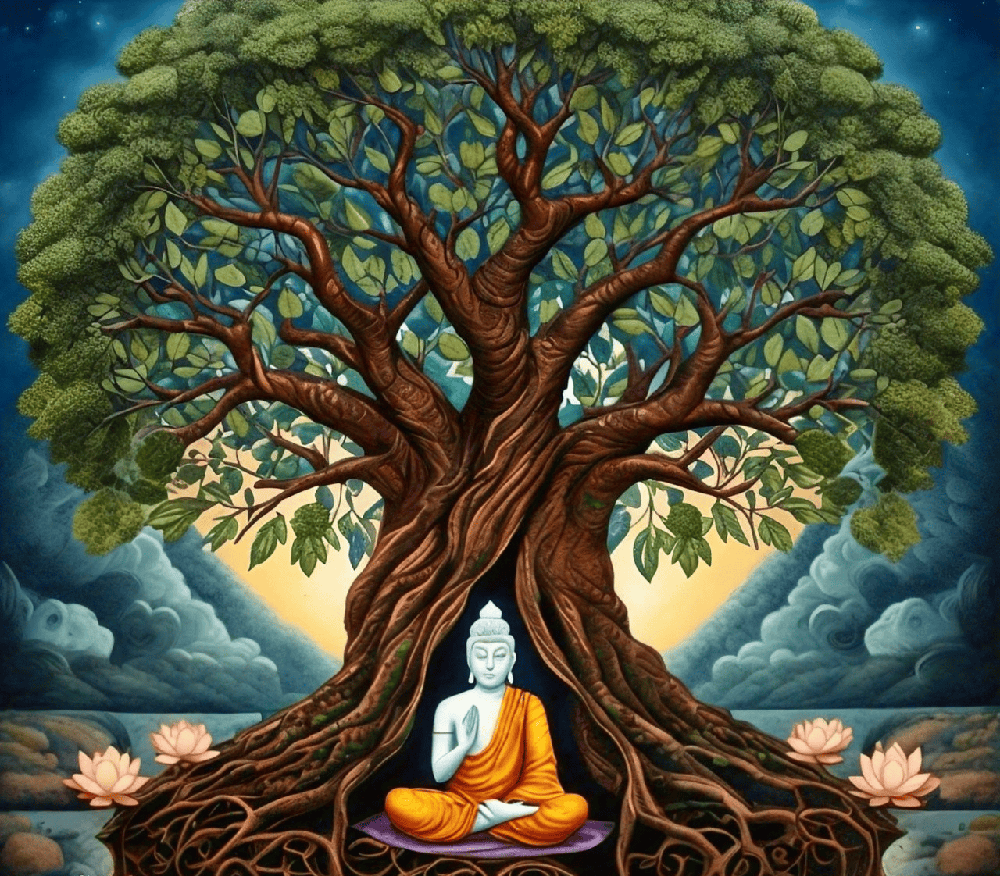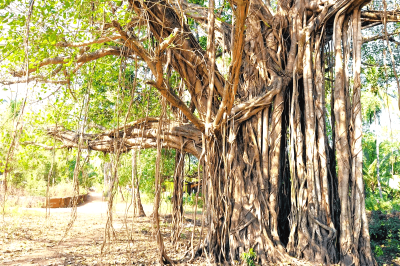The History Of The Sacred Banyan Tree
By Diptimayee parida | bangalore August 31, 2017
According to Hinduism, the sacred Vata Vriksha, or the Banyan tree, is the most important among the sacred trees. This sacred tree symbolizes Brahma, Vishnu, Shiva, Sasthi, Krishna, Lakshmi, and Kuber. In ancient epics like the Ramayana, specifically the Uttar Ramcharit, the tree is mentioned. The Banyan tree, scientifically named Ficus benghalensis, is considered immortal and has been revered since the Vedic periods. In Buddhism, it is said that Lord Buddha attained enlightenment under the Banyan tree. In Hindu religion, the Vata Vriksh is considered perfect for meditation. The oldest Vata or Banyan tree is found at Prayag in Allahabad, where the three sacred rivers meet.

There is a story about the origin of the Vata Vriksh. It is said that once Lord Shiva and his consort Parvati were engaged in amorous dalliances in an isolated place. Then, Agni came to crack a joke on the instigation of the Trinity - Brahma, Vishnu, and Maheswara. This made Parvati angry, and she cursed the instigators, metamorphosing Lord Brahma into Palasa, Vishnu into Peepal, and Maheswara into Vata.
The trees are named differently in various languages. In Sanskrit and Bengali, it is called Vata or Akshya Vata; in Gujarati, Vada; in Telugu, Peddamati; and in Hindi, it is called Bar.

The women of Maharashtra and Gujarat worship the Vad or Vata as part of Hindu rituals on the 15th day of the Jyestha month. In eastern India, on the special occasion of Sasthi Puja, a branch of the Vata tree is compulsorily used. The Bengali people worship the Vata Vriksh as Lord Brahma on Saturdays during Jyestha.
In the Savitri and Satyaban story, when Savitri lost her husband, as destined, one year after her marriage near a Banyan tree, she followed Yama to the land of the dead and, through determination and intelligence, managed to secure back her husband's life. In memory of that event, the Vata Savitri Puja became popular among Indian women, who keep this fast for the longevity of their husbands, protecting themselves from widowhood, which is believed to be the worst fate for Hindu women.

Conclusion:
As we've explored the significance of the Vata Vriksh, we've seen its far-reaching impact on Hinduism and beyond. From its role in Hindu rituals to its medicinal properties, this sacred tree is a true marvel. May this knowledge inspire you to appreciate the beauty and significance of the Vata Vriksh.
Ready to learn more about the Vata Vriksh and its significance in Hinduism? Explore our resources and courses to further your knowledge of this sacred tree and its importance in Hindu traditions.



